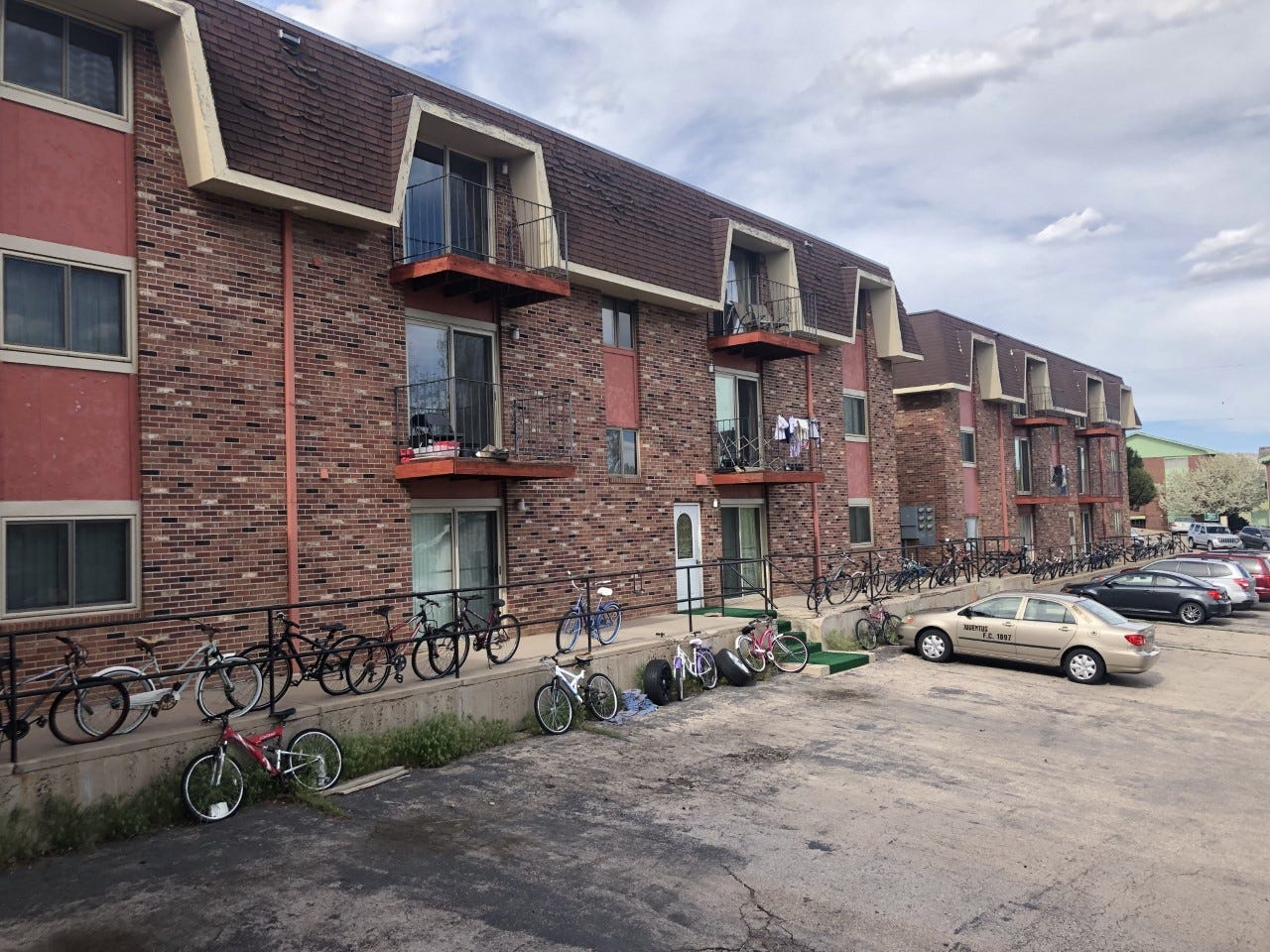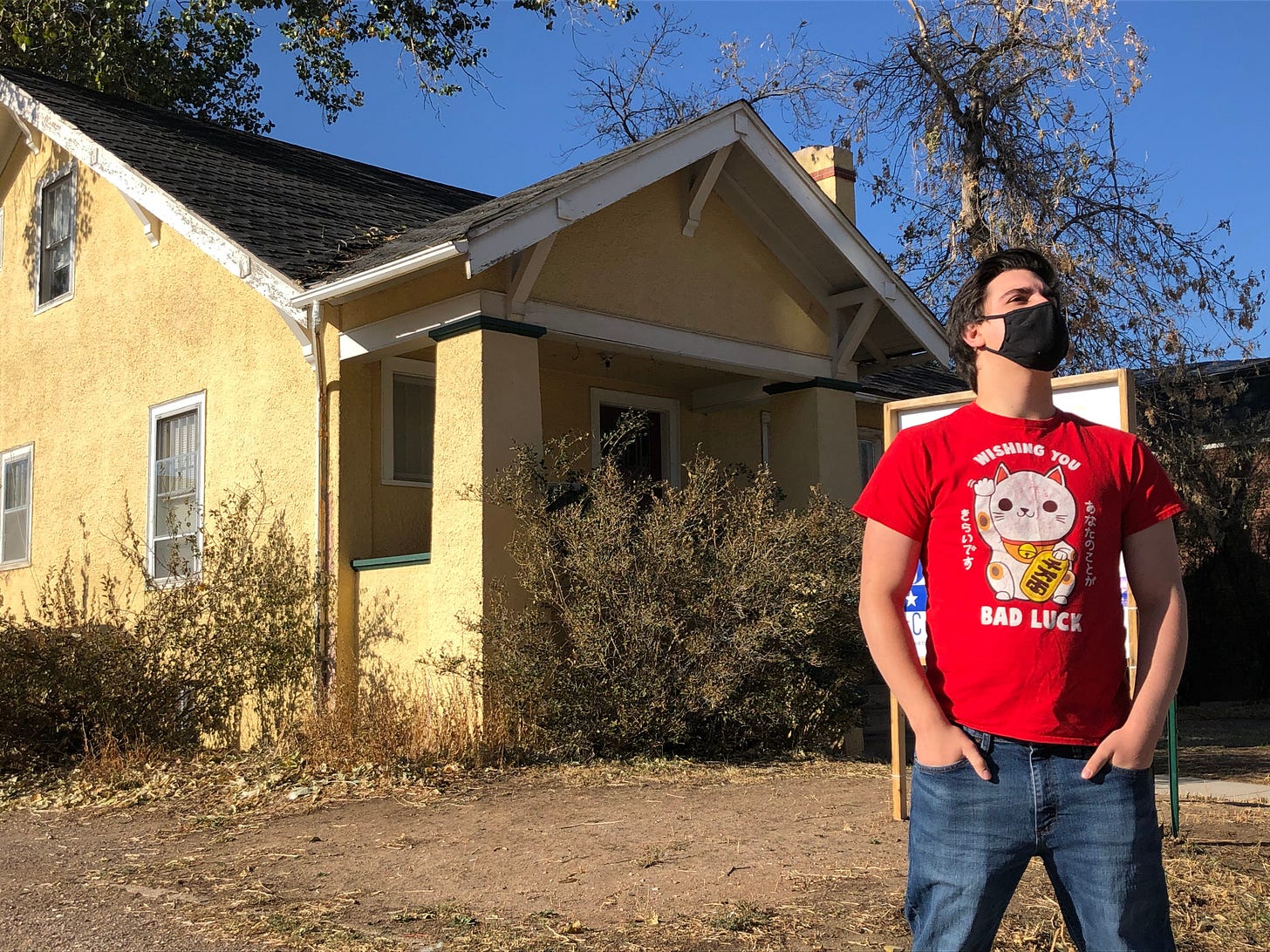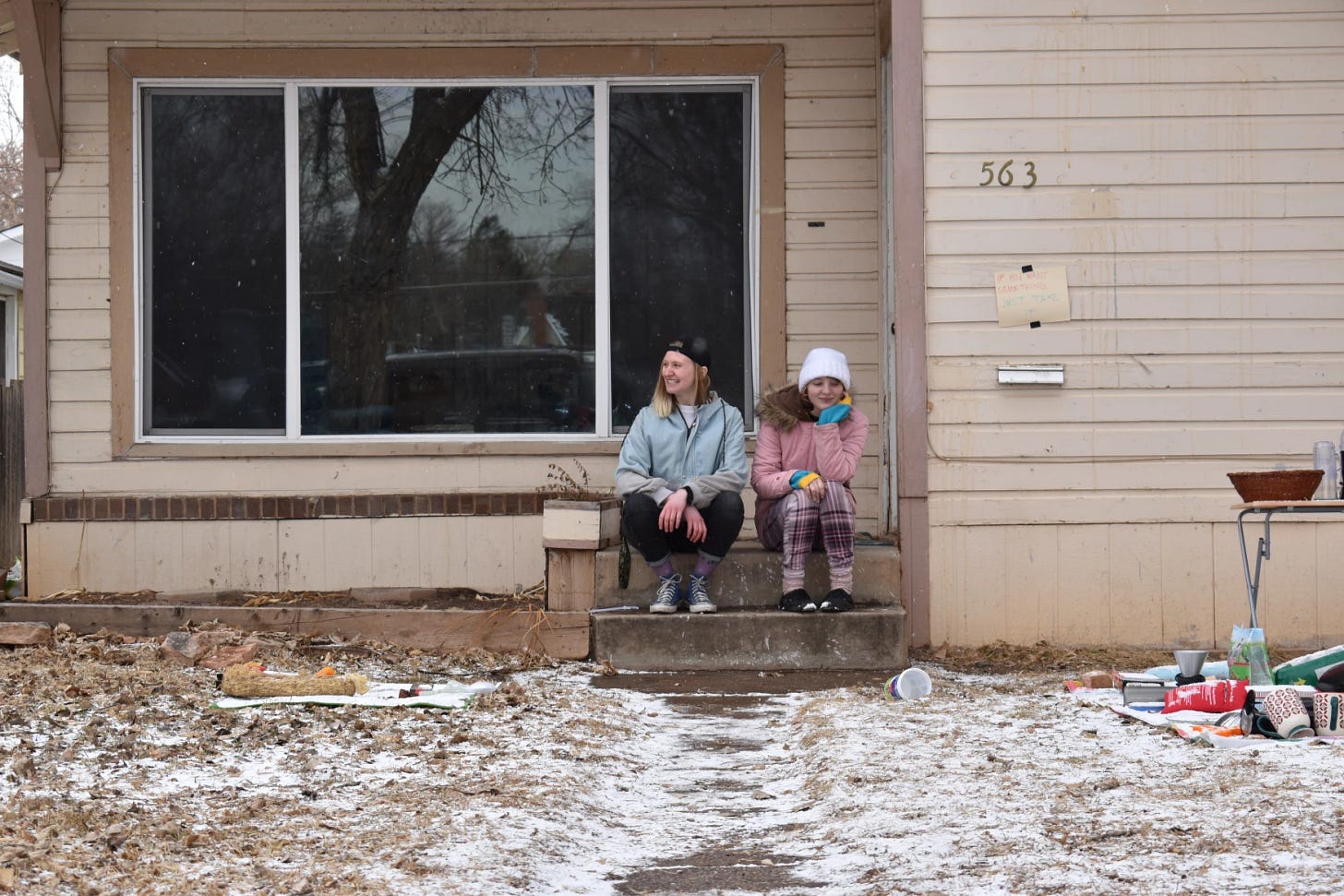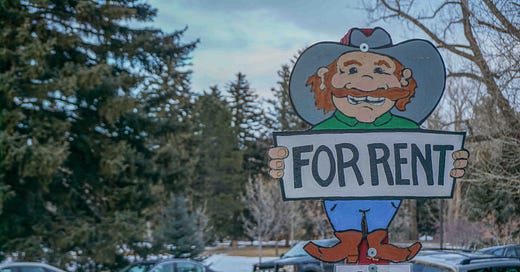Landlords tell lawmakers they don’t want Tenant Bill of Rights
Housing organizations told the corporations committee they supported affordable housing reforms but objected to tenant protections. Laramie’s rental regulations have come under fire once again.
Lawmakers will likely resurrect a bill to preempt and outlaw Laramie’s rental regulations — but what that bill includes and whether it ultimately stands a chance in the Wyoming Legislature will depend on the next several months of committee debate and stakeholder input.
The Joint Corporations, Elections & Political Subdivisions Committee met for its first substantial interim meeting Monday, providing the public a preview of the bills it will consider ahead of the general session next year. Among those bills were several related to housing.
One of the draft bills could expand tax increment financing, another could reduce housing regulations to spur more affordable development, and yet another could incentivize the cleanup of abandoned or nuisance properties, resurrecting a bill Albany County’s Rep. Trey Sherwood (HD-14) tried earlier this year.
But of particular interest to residents of Laramie, lawmakers will consider a bill that would eradicate the city’s health and safety standards for rentals while forbidding municipalities across the state from passing their own. And an example “Tenant Bill of Rights” — floated briefly by a representative of Habitat for Humanity — was roundly rejected by the public commenters present at the Monday meeting, almost all of them representing organizations opposed to expanded renter protections.
“We don’t want to put stuff in place that regulates rentals to the point that we no longer have people willing to be landlords,” said Julie Gliem of the Wyoming Landlords Association — an industry group representing 500 landlords controlling some 10,000 households, according to Gliem.
In addition to the Wyoming Landlords Association, lawmakers heard from a contract lobbyist for Wyoming Realtors and the executive director of the Cheyenne Housing Authority — both of whom opposed strengthening protections for renters. They also heard from Brett Glass, a Laramie landlord who has railed against rental regulations for years.
They did not hear from any tenant associations.
In general, commenters argued that current regulations were burdensome and that further regulations would be inappropriate.
Three documents informed the Monday conversation surrounding renter protections and tenant rights:
Laramie’s City Rental Housing Code: An ordinance passed in early 2022 detailing basic health and safety requirements for rentals. The code requires that rental units be weatherproofed, structurally sound, and fitted with fire escape windows. Rentals also have to be free of mold and pests, while major heating, plumbing and electrical work has to be performed by licensed professionals. The code also requires landlords to register their rentals with the city — a provision that a majority of Laramie landlords are currently violating. The code’s future is threatened by House Bill 216.
House Bill 216 (2023): A failed bill that would have extinguished local control over rental regulations, effectively outlawing Laramie’s Rental Housing Code. Rep. Dan Zwonitzer (HD-43) sponsored the bill during the 2023 General Session of the Wyoming Legislature. It was assigned to the House Revenue Committee but died without a vote. Lawmakers indicated a willingness to resurrect this bill and consider it again ahead of the 2025 General Session next year.
Virginia’s Statement of Tenant Rights and Responsibilities: A local chapter of Habitat for Humanity submitted this document to the committee as a starting point for conversation. The “Bill of Rights,” as it was frequently called, outlines that tenants have a right to a written lease and also to a “fit and habitable” living space, among other basic provisions outlining how move-outs, evictions and deposits should be handled so as to be fair and consistent. The “Bill of Rights” also outlines tenant responsibilities, such as to keep the rental clean, allow reasonable access and pay rent on time. Most commenters dismissed the proposal as unnecessary or inappropriate for Wyoming.
Laramie’s Rental Housing Code: Past, present and future
Laramie is a city of renters. Unlike any other Wyoming municipality, a majority of its population rents the home they live in. This is, in part, thanks to the University of Wyoming and the perennial need for student housing but is also due to Albany County’s high level of poverty.
With so many inexperienced or poor renters — and such a severe housing shortage — the city has come to be known as a playground for slumlords. Rental tenants regularly report horror stories — from substandard or dangerous living conditions to arbitrary rent hikes to aggressive landlords who know how to game the court system and evade justice.
Responding to these stories — and at the insistence of Laramie’s nonprofit community, including the city’s main food pantry and its only domestic violence shelter — the Laramie City Council approved the rental housing code. It outlines basic health and safety requirements, requires unit registration, and establishes a formal complaint system.
Lawmakers were not specifically discussing Laramie’s rental housing code, but its passage, the movement that passed it, and the possibility of other communities passing the same, informed some of the public comment. Glass, the Laramie landlord, spoke about it specifically and at length.
Rental regulations and those who oppose them
Addressing the corporations committee Monday, Glass offered his input on various housing issues.
He said the property tax relief offered by the Wyoming Legislature during its most recent session should be expanded to benefit renters in some way and he suggested some other changes that could benefit renters — such as waiving the circuit court filing fees that have kept many Laramie tenants from pursuing legal justice against unscrupulous landlords.
But he also took aim at his city’s rental regulations.
“It had the effect of driving up rents, preventing maintenance, imposing needless costs and decimating the supply of affordable rental housing,” Glass said.
He did not cite evidence for these claims.
Many if not most Laramie tenants have seen their rent increase substantially in the last two years. But the registration fee now imposed on landlords — a fee that amounts to $1.67 per unit per month — cannot account for rents jumping, in some cases, as much as $80 per month. There’s no evidence that the rental regulations have “decimated” or even reduced the supply of affordable rental housing in Laramie, which has been an acute problem for the city for more than a decade.

Glass said the regulations were “draconian” and “likely unconstitutional” and he urged the lawmakers to bring back House Bill 216 to “take back control of the current chaotic situation.”
As the Laramie Reporter detailed in 2023, the bill:
… would have revoked the legal right that Wyoming municipalities currently enjoy to pass their own rental regulations. If it had passed, the bill would have reserved that right to the State Legislature. It would have immediately undone Laramie’s rental regulations and rendered the city ordinance enforceable.
But Rep. Mike Yin (HD-16) questioned Glass’ characterization of Laramie’s rental housing code.
“It sounds like you already believe that the Laramie ordinances are either illegal or unconstitutional,” the representative asked the landlord. “Have you ever taken this to court or in front of a judge to get a ruling on that?”
Glass responded:
“One landlord attempted to do this and the city hired very expensive lawyers and tied the case up in court so much that they couldn't pursue it. They ran out of money to do so. A judge initially ruled a little bit in their favor, but the matter wasn’t really settled. So we don’t really know. We don’t know what the courts would say if this were pursued all the way in the appropriate manner.”
But the issue was pursued all the way, and the matter was settled, rather definitely, with Albany County District Court ruling that the city has a clear legal right to establish rental regulations.
“The weight of authority favors a finding that municipalities, within the exercise of their statutorily granted authority, may enact rental housing codes,” then-District Court Judge Tori Kricken wrote. “‘The general rule is that where a local law merely enlarges upon the provisions of a state statute by having stricter requirements than the statute, there is no conflict between the two where the legislature has not preempted regulation of the field.’”
The court did note that a small part of the code’s enforcement mechanism wasn’t clear enough, and the council was able to easily rectify that wording with an amendment passed during its next meeting.
The city did hire outside counsel, Mark Stewart of Davis & Cannon, but the lawsuit got its day in court with both sides able to make arguments. Bell Leasing, the firm that brought the lawsuit, filed an appeal with the Wyoming Supreme Court, but quickly withdrew that appeal.

Yin objected to the idea of bringing back HB216, arguing that the city of Laramie had taken specific action to address a specific problem.
“Laramie has some issues where there were landlords not providing basic habitability standards,” he said. “So you’d have housing that had no heat, you’d have housing that had no water, and so they just added an enforcement tool to make sure that they had heat and water. If we have a broad preemption, we might have a situation where we’re going to have non-habitable housing.”
Rep. Sandy Newsome (HD-24) said HB216 flew in the face of local control.
“I’m not a fan of taking away local control,” she said. “I think each of our communities is unique and each of our communities has their own challenges and that regulation should sit with city councils and county commissioners and not with the state. It really gives me heartburn for us to dig down into what should be local control and mess with that.”
HB216 was initially co-sponsored by Albany County Rep. Ocean Andrew (HD-46); it was opposed by UW’s student government. On Monday, Sen. Charles Scott (SD-30) proposed resurrecting the failed legislation; the committee will likely consider a copy of HB216 during its next meeting in August.
If a majority of the committee ultimately endorses the bill, it will be sent to the full Wyoming Legislature with committee-backing. That would be a stronger position than the bill enjoyed in 2023 when it was sponsored by individual lawmakers and failed to earn a committee vote before that session’s deadline.
Landlords “not wild” about tenant bill of rights
Apart from but related to the discussion about existing rental regulations and HB216, a representative from Habitat for Humanity provided Virginia’s Tenant Bill of Rights to the Corporations Committee for consideration.
“By no means am I saying this is what we should do exactly,” said Dan Dorsch, Habitat for Humanity of Laramie County’s executive director. “It’s merely an example to open the door for rental discussions because it can be a hot topic, and we felt that this was a way to start because it talks about how to be good tenants, and good landlords, and bring both sides of the table together.”
The suggestion was rejected immediately.
“We were not wild about the Virginia landlord-tenant bill paper that I read,” Laurie Urbigkit, a lobbyist for Wyoming Realtors, told lawmakers.
Landlords were “not wild” about the suggestion either.
“In general, they’re against the tenant rights and responsibilities [statement],” Gliem said, referring to the Wyoming Landlord Association’s membership. “However, if it’s going to be passed, they would like some input on what’s being put into that document. Because at this time, it is difficult for people to be landlords … We don’t want to put stuff in place that regulates rentals to the point that we no longer have people willing to be landlords.”
Gliem elaborated only briefly on which parts of the document were objectionable to landlords. She said some of its provisions were already covered by Wyoming law and that other provisions were vague, such as the requirement that rentals must be “fit and habitable.”
“What does habitability mean? Because from one person to the next that very term could have a very different meaning,” Gliem said.
This vagueness, however, is already present in Wyoming state law. State Statutes 1-21-1201 through 1-21-1212 — the section of law outlining rules related to residential rental property — require landlords to keep rentals in “a safe and sanitary condition fit for human habitation” but don’t specify what amenities a rental requires to be considered “fit for human habitation” other than having “operational electrical, heating and plumbing.”
The state law does not, for example, require fire escape windows — a provision included in Laramie’s rental housing code that was resisted by many landlords.
The overall sparseness of the statutes is why many advocates for renter protections argue that state law is inadequate.
Additionally, tenants forced to sue their landlords for allegedly violating the “fit for human habitation” provision have found it difficult to argue their case in court, especially when their landlord can afford a lawyer but they themselves cannot. Laramie’s rental regulations were passed, in part, to give tenants a recourse that did not require engaging in a potentially costly court struggle to assert their statutory rights.
Pandemic assistance ends, rent hikes continue
Gliem was not alone in her criticism of the Tenant Bill of Rights.
“We do not need more regulation; we need less,” said Gregory Hancock, executive director of the Cheyenne Housing Authority, a city-appointed agency that manages public housing in Cheyenne and Laramie.
He said landlords face increasing difficulties already.
“Damage and non-payment of rent is increasing,” Hancock said. “Typically, the Cheyenne Housing Authority writes off somewhere in the neighborhood of $70,000 a year. In the last 12 months, we wrote off $170,000 — and those are debts that we’ve done everything we can to collect on, and we have not been successful.”
It should be noted that the dollar amount affixed to “non-payment of rent” will naturally increase if: the dollar amount affixed to rent has increased, which it has, while the number of low-income households facing a severe cost burden remains high, which it has.
Hancock said pandemic-era federal assistance programs, such as the Emergency Rental Assistance Program, didn’t help.
“Federal actions in regard to COVID, for example, while intended to support tenants, appear to have been created based on the assumption that landlords take advantage of tenants and landlords have an endless supply of financial and other resources,” he said. “In nearly every case, here in Wyoming, we have seen that that is not the correct assumption.”

The emergency rental assistance program kept 17,000 Wyomingites in their homes during the pandemic, distributing $82 million directly to landlords and another $20 million to renters, who then used that money to pay rent.
Many landlords turned down the assistance since it prohibited them from raising rents for 12 months, forcing the ERA program to change its rules and allow direct payments to tenants whose landlords wouldn’t accept on their behalf.
The program has now ended and millions of Americans have lost the assistance that was keeping them in their homes. Yet rent remains high. Laramie’s main food pantry and its soup kitchen have reported increased need from the community’s poorest residents, driven by the termination of pandemic assistance, a period of inflation, and rent hikes by landlords.
But Hancock, like Gliem, said he was concerned about the viability of landlording going forward — something he said is threatened by unnecessary regulation like the Tenant Bill of Rights.
“Landlords are small business owners working to address the need for affordable housing in their communities,” he said. “They need tenant rental income to pay their mortgages, pay their staff, pay property taxes and maintain their properties … I would hope that this committee would look for ways to support the rental housing industry, reduce the regulatory burden, and not add to it by implementing a tenant bill of rights.”
Rents continue to rise and it’s still lucrative to be a landlord, but some industry experts predict rent hikes will slow down this year.






Another great report!!
Please look into Impact Communities who are buying up all of Laramie's mobile home parks and upending things.